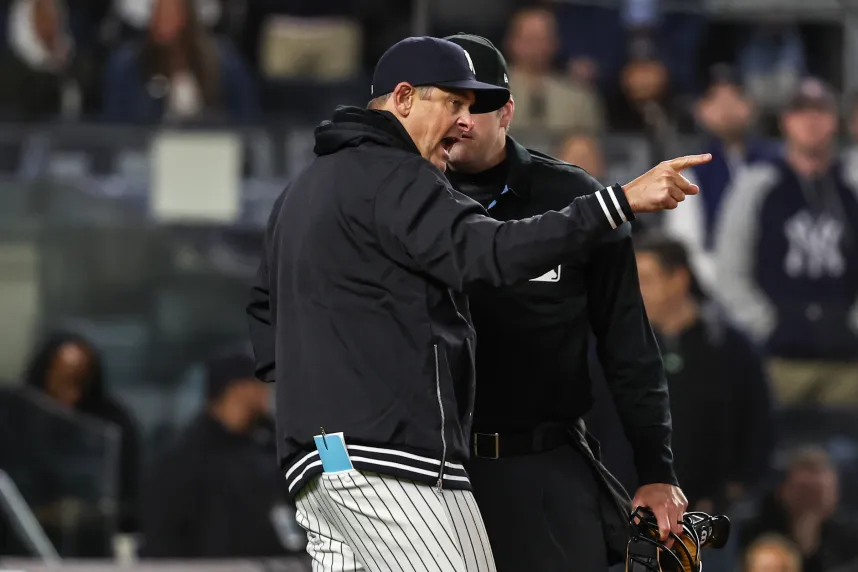
Fritz Peterson, Yankee Pitcher in an Unusual ‘Trade,’ Dies at 81

He was a leading light on an undistinguished team. But he became known less for his achievement on the field than for exchanging wives with a teammate.
Fritz Peterson, who was a stalwart pitcher for the ineffectual Yankees of the late 1960s and early ’70s, but whose lingering renown derived more from one of baseball’s most notorious “trades” — his exchange of wives with a teammate — has died at his home in Winona, Minn. He was 81.
Julie Wimbish, a representative of the Winona County Vital Records Department, confirmed on Tuesday that Peterson died of lung cancer on Oct. 19, 2023. His death was initially announced on Friday by Northern Illinois University, Peterson’s alma mater, and by the Yankees, but neither announcement said when or where he died or cited a cause.
Peterson had previously been treated for prostate cancer, and in 2018 he disclosed in an interview with The New York Post and in a Facebook post that he had Alzheimer’s disease.
Peterson had the misfortune of joining the Yankees in 1966, when the team finished last in a 10-team American League, near the start of one of the more miserable stretches in team history. Over his eight full seasons in New York, the Yankees never finished higher than second and managed to win more than they lost just four times. Mickey Mantle, the last vestige of sustained Yankee glory, retired; attendance in the Bronx slid to its lowest since World War II, just before George Steinbrenner and other investors bought the team from CBS, which sold it at a loss, for $10 million, essentially a pittance.
In this gloomy era, Peterson was a leading light. Sharing the top of the rotation with another unlucky Yankee, Mel Stottlemyre (who had at least gotten to pitch for the pennant-winning 1964 squad), Peterson won 109 games, including 20 in 1970, when he made his only All-Star team, and averaged more than 17 wins over a four-year stretch from 1969 to 1972. A left-hander, he did not overpower hitters. But he changed speeds effectively, employing a variation on a changeup called a palm ball, and he had superb control. He had the fewest walks per nine innings in the American League for five straight seasons. For his career he averaged just 1.7 walks per game
He was also known as a prankster who relished the childishness that flourished in the locker room. On the road with the Yankees, he roomed for a time with Jim Bouton, the pitcher and baseball iconoclast who would later become best known for his memoir “Ball Four.” The book undermined their friendship, but before that they were partners in clubhouse mischief; they once loaded the hair dryer of their coiffure-sensitive, toupee-wearing teammate Joe Pepitone with talcum powder.
Peterson’s own memoir, “Mickey Mantle Is Going to Heaven” (2009), is one of the odder artifacts of baseball literature. A combination of storytelling — from the ballpark and from the meandering path of Peterson’s journey to Christian evangelism — it ends several chapters by speculating about which of Peterson’s former teammates would go to heaven (Mantle and Bobby Murcer) and which would not (Bouton).
But none of Peterson’s on-field achievements or off-field eccentricities proved to be as memorable as the disclosure, in March 1973, that he and another Yankee pitcher, Mike Kekich, were living in each other’s house with each other’s wife and children. As a headline in The Daily News declared, “2 Yank Pitchers Trade Wives: Peterson, Kekich Hurl Change-Ups.”
The two men, who each had two young children, had known each other since 1969, after Kekich was traded to the Yankees by the Los Angeles Dodgers. They had become close friends, had gotten to know each other’s wives, and by the summer of 1972 were discussing the evident fact that Peterson and Susanne Kekich had fallen in love, as had Kekich and Marilyn Peterson.
Their solution was for the men to switch not just wives but families, with the Kekiches’ daughters, Kristen, 5, and Reagan, 2, joining their mother at Petersons’ house, and the Petersons’ sons, Gregg, 5, and Eric, 2, moving in with Kekich. In interviews at the time, the couples both said that the so-called scandal was hardly scandalous. “It wasn’t a wife swap,” Kekich said. “It was a life swap. We’re not saying we’re right and everyone else who thinks we’re wrong are wrong. It’s just the way we felt.”
The relationship between Mike Kekich and Marilyn Peterson dissolved shortly after it was made public. Fritz Peterson and Susanne Kekich were married in 1974 and remained so. She survives him. (Complete information on survivors was not immediately available.)
Fritz Peterson was born Fred Ingels Peterson in Chicago on Feb. 8, 1942, the eldest of three children of Fred and Annette (Ingels) Peterson. His father was a switchboard installer for the local phone company; his mother oversaw the household.
The family lived for a time in Crystal Lake, Ill., northwest of Chicago, and Fred went to high school in Arlington Heights, Ill, where he played hockey as well as baseball. He attended Northern Illinois University, where he starred as a pitcher, and earned a bachelor’s degree in 1965, two years after signing with the Yankees and playing the first of three minor league seasons.
On April 15, 1966, in his big league debut, Peterson pitched the Yankees to their first victory of the season, beating the Baltimore Orioles.
He went 12-11 in his rookie year for a team whose woeful record was 70-89-1. The next off-season, 1972-73, as the Peterson and Kekich marriages intertwined, Peterson worked as a radio commentator for the New York Raiders of the short-lived World Hockey Association. That winter, the Yankees were bought by Steinbrenner, a businessman who insisted that his players represent the team in a clean-cut manner.
Following the exchange of families, Kekich was traded to Cleveland in June, and Peterson was booed by fans throughout 1973 before being shipped, also to Cleveland, in April 1974.
He spent just over two seasons there and finished his career in 1976 with a short stint with the Texas Rangers. His overall won-lost record was 133-131, with an earned run average of 3.30.
In his post-baseball career, Peterson was an insurance salesman and a blackjack dealer and wrote two other books: “The Art of De-Conditioning: Eating Your Way to Heaven,” a satire of diet and exercise regimens, and “When the Yankees Were on the ‘Fritz’: Revisiting the ‘Horace Clarke Era,’” a reference to the infielder who came to personify the mediocre Yankee teams Peterson played on.
It had been Peterson’s era as well.
A correction was made on
:
A previous version of this obituary misstated Peterson’s age at his death. He was 81, not 82, as was reported on Saturday after his death was announced by the Yankees and Northern Illinois University, his alma mater. Their announcements did not specify when or where he died. It was later learned that he died on Oct. 19, 2023, before his 82nd birthday.



Be the first to comment